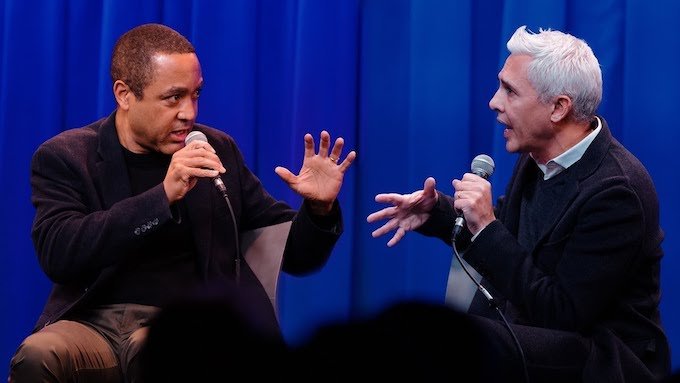In my university orientation, one of our advisors told us, “Study Languages.”
She elaborated that anything you’re interested in will be made more clear and useful by studying a foreign language. And beyond your specific studies, learning a language (regardless of your age, fluency, etc.) improves your brain and provides insight into countless phenomenon. As a historian, I second this advice emphatically. Languages are invaluable in helping one understand how both societies and individuals grow, decay, and adapt. There are millions of historical leads buried in their grammar and vocabulary.
Linguist John McWhorter hosts a superb half-hour podcast examining various facets of language called Lexicon Valley. While the topic is always language, the conversation invariably swerves into past, present, future- abstract to concrete- politics to culture- and back.
Professor McWhorter has often argued against the grain. As a Black academic, he famously argued against educational initiatives in the 90s that claimed that Black students would be better served learning African-American Vernacular English (AKA Ebonics) instead of traditional English. Proponents cited data showing that Black students performed worse than other demographics in English classes and determined it was because they were learning someone else’s language. McWhorter’s position was and is that this approach denies Black students an equal education and that the data revealing Black “underperformance” is more accurately attributed to socioeconomic status and antiquated testing methods.
These topics crop up on Lexicon Valley occasionally, but only because, as I said, when you study languages, every topic crops up. McWhorter is a highly listenable host respectfully navigating the beautiful, volatile topic of language.
Luego! <(Spanish)
John McWhorter debating (academically) antiracism with Nikhil Singh- Reason TV. https://www.youtube.com/watch?app=desktop&v=mzPKk19t3Kw
Lexicon Valley- Recommended Episodes:
8/21/23- Miami English
9/13/22- Is Negro a Slur or just Antiquated?
11/2/21- Can you play “Jew” in Scrabble?
9/7/21- What do they Speak in Afghanistan?
8/24/21- The Morphing of Critical Race Theory

